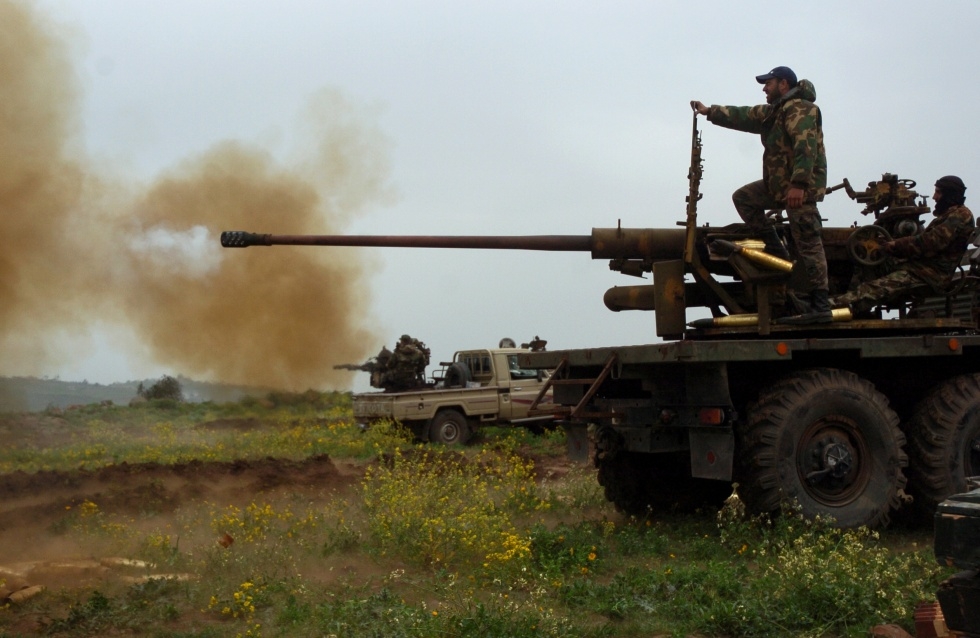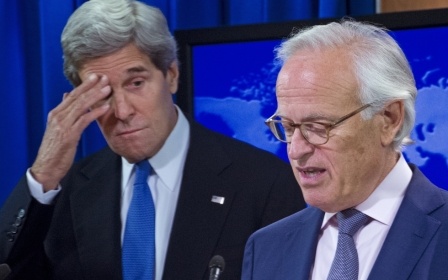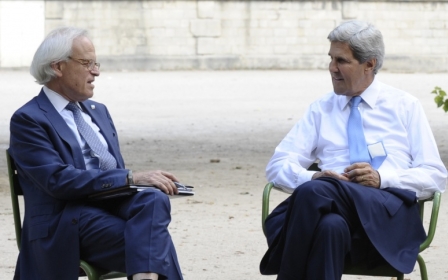Navigating Syria: the impossible, indispensable mission

I unfriended another Facebook friend this week. It may seem to be a trivial matter, but for me, it is not. The reason behind my action was Syria. As in Egypt, Syria has instigated many social media breakups with people whom, until then, were regarded with a degree of respect and admiration.
But this is not a social media affair. The problems lie at the core of the Syrian conflict, with all of its manifestations, be they political, sectarian, ideological, cultural, and intellectual. While on the left (not the establishment left of course) Palestine has brought many likeminded people together, Egypt has fragmented that unity, and Syria has crushed and pulverized it to bits.
Those who cried over the victims of Israeli wars on Gaza, did not seem very concerned about Palestinians starving to death in the Yarmouk refugee camp on the outskirts of Damascus. Some squarely blamed the Syrian government for the siege that killed hundreds, while others blamed the rebels. Some writers even went further, blaming the residents of the camp. Somehow, the refugees were implicated in their own misery and needed to be collectively punished for showing sympathy to the Syrian opposition.
The only line of logic that exists in the Yarmouk narrative, as in the Syrian story as a whole, is that there is no logic. It has turned out that solidarity with Palestinians has limits. If forces loyal to President Bashar al-Assad do the shooting – and the shelling and the starving – then the plight of the refugees is open for discussion.
It also has turned out that some of those who pose as human rights activists are rarely compelled by ethical priorities, but rather dogmatic ideology that is so rigid it has no space for a sensible argument based on a serious investigation of facts.
Some self-proclaimed ‘progressives’ have decided to elevate the status of Bashar al-Assad to that of being the last line of defence against American imperialism. They have done so with Libya’s Muammar Gaddafi as well. Their line of reasoning doesn’t stem from a serious understanding of the legacies of both men, but an entirely different set of representations, as in the West’s own attitude towards Libya and Syria. Syria supported Hezbollah and Hamas in their resistance to Israel. True. Leading US neoconservatives have plotted for years to ‘roll back’ Damascus, and to subdue any resistance to Israeli hegemony. Also true. But between delineating these truths and others, in all that the Syrian government has done - the horrendous war crimes, the perpetual sieges, the unhindered violations of human rights - everything is somehow forgiven. They are not to be discussed, or even acknowledged. In fact, for some, they never happened.
The other side is just as culpable. Crimes committed by opposition forces and al-Qaeda affiliated groups are heinous and barbaric. A simple news search produces volumes of crimes, massacres of entire villages, and whole families or individuals who belonged to the wrong sect, or religion.
The intellectual crowd that opposes Assad is also unmoved by all of this. They often pin the blame on Assad or the thugs (shabiha) for any reported crime anywhere in Syria. And when news emerges that the victims were loyalists to Assad, they find ways to twist the story in order to place the blame on Assad forces anyway. But when more is revealed to prove the responsibility of an opposition-affiliated militia, or a gang, they simply shift gears to another massacre elsewhere, which is real or fabricated.
How is one to navigate a Syria where there are no ‘good guys’, where a return to the status quo of an inherently corrupt, oppressive and an undemocratic, clan-based government is unthinkable? And where neither al-Nusra, the Islamic State of Iraq and the Levant nor any other warning faction offers the antidotes to Syria’s many ills – even worse, they offer an archaic and essentially violent interpretation of Islam?
How is one to navigate the Syrian intellectual realm when both narratives are riddled with half-truths or outright lies, where each discourse is predicated on the complete dismissal of the other? How is one to navigate this territory when many intellectuals who also masquerade as ‘human rights activists’ turn out to be narrow-minded ideologues devoid of any humanism?
Bashar is not a deity. He is no Che Guevara either. The crimes his forces committed, would be enough to send thousands of his backers to a never ending imprisonment. His opponents are no liberators. Few amongst them have any potential of being a harbinger of democracy or justice. Their crime record is vile and frightening.
The Syrian narrative is very complex because a ‘just solution’ is not a matter of a clever articulation of words. Aside from the Syrian camps, parties involved include Western powers, Arab governments, Israel, Russia, Iran, and a cluster of intelligence agencies and legions of foreigners, on all sides. The agendas are mostly sinister. The media campaigns are driven by lies. The story of the Ghouta chemical attack of last year is particularly poignant. A war was about to break out, led by the US and cheered on by Arabs. A recent investigation by Pulitzer Prize-winning journalist Seymour Hersh suggests that the whole thing might’ve been a plot, involving Turkey, to indict the regime. He argues that the Americans knew it, yet still were ready to go to war.
If the Nusra group was indeed behind the Ghouta killings of hundreds of innocent Syrians, the Syrian army is not innocent; far from it; as it has killed thousands. The barrel bombs continue to level entire neighborhoods. Those who survived the chemical attacks, manage to die in numerous other ways.
New killing methods are now reportedly include crucifying victims. All of Syria is in fact being crucified. In fact, despite their differences, Syria’s warring parties are united in the blood of Syrians – and Palestinians – which they shed on a daily basis. When over 150,000 Syrians, including 10,000 children are dead, and 6.5 million are internally displaced, and 2.5 million have fled beyond the country’s borders, no one is innocent. As for the pseudo-intellectuals who are keeping track of one body count, and ignoring the other, they must wake up to the fact that there is only one pool of victims, the Syrian people.
Bishop Desmond Tutu is famous for his quote “If you are neutral in situations of injustice, you have chosen the side of the oppressor.” Some of those who applied the quote abundantly in the case of Palestine, are now ignoring it in the case of Syria, for it doesn’t fit perfectly with their ideas, where there can only be space for one single unadulterated and simplified narrative. All ‘facts’ are carefully selected and stacked in so carefully away to glorify one party and demonize the other. In their world, the story is convincingly clear, and those who don’t agree to its every component must be either a Jihadist, a Zionist, an Assad-sympathizer, a fan of Hezbollah or on the payroll of one intelligence service or the other.
But how do you navigate an impossible story? The answer: You side with the victim, no matter her colour, sect or creed. You remain committed to the truth, no matter how elusive. You drop every presupposition, abandon ideology, permanently discard dogma, and approach Syria with abundance of humanity and humility. We need to understand the roots of this heinous war, but we also need it to end for the good of the Syrian people. The Syrian conflict should not be a stage of bloody political intrigues for the West and Russia, Israel, Iran and the Arabs. Syria is not a God-given inheritance of the Assad-clan and their friends, or a space for another extremist experiment, as was the case in Afghanistan and Somalia, or another imaginary battlefield for social media leftists, whose claim to socialism is an occasional Facebook profile photo of a clasped fist, or an earth shattering quote about defeating capitalism.
Syria belongs to its people. You either stand on their side, or the side of the oppressor.
- Ramzy Baroud is a consultant at Middle East Eye. He is an internationally-syndicated columnist, a media consultant, an author and the founder of PalestineChronicle.com. His latest book is My Father Was a Freedom Fighter: Gaza’s Untold Story (Pluto Press, London).
(Photo credit: Syrian forces fire a cannon and a heavy machine gun loaded on a truck during fighting against rebels in the town of Zara, in the province of Homs, on March 8, 2014 (AFP))
Middle East Eye propose une couverture et une analyse indépendantes et incomparables du Moyen-Orient, de l’Afrique du Nord et d’autres régions du monde. Pour en savoir plus sur la reprise de ce contenu et les frais qui s’appliquent, veuillez remplir ce formulaire [en anglais]. Pour en savoir plus sur MEE, cliquez ici [en anglais].




